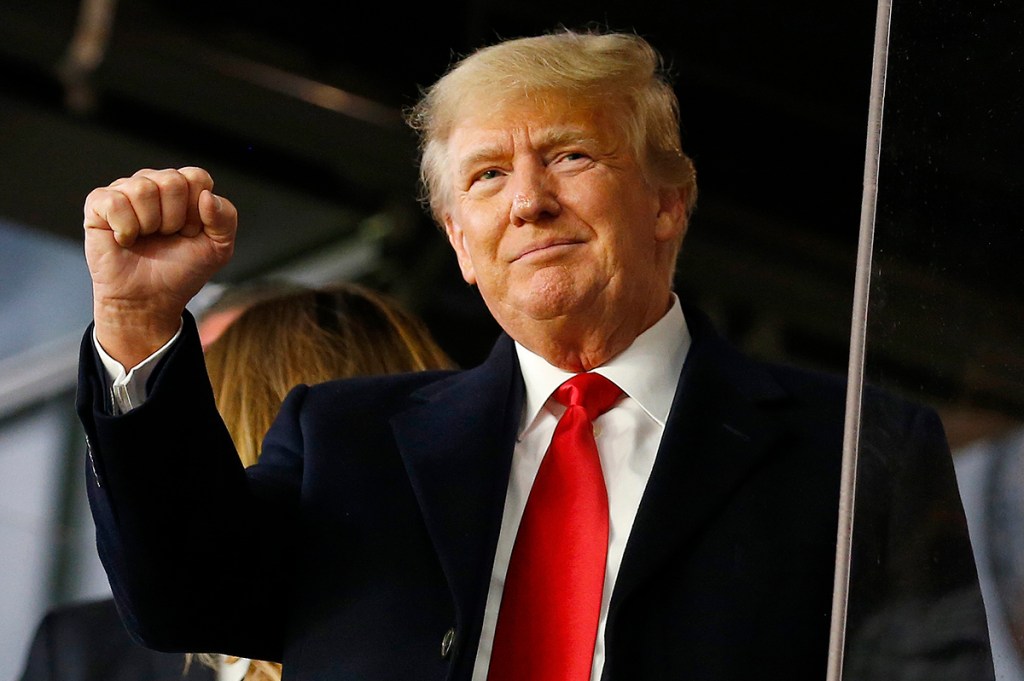“In order to make our country successful, safe, and glorious again, I will probably have to do it again,” said former president Donald J. Trump at a rally in Texas last Saturday. It was yet another hint that he will seek the presidency in 2024. Over the weekend, British politics simultaneously fluttered at the possibility that former prime minister Boris Johnson might return to office following the resignation of his successor Liz Truss.
Trump and Johnson share more than a scintilla of similarity. Large and blond, both men made their way into politics as flippant populist spoilers, antagonizing establishment critics while inspiring outsiders who felt excluded from elite decision making. They faced immense challenges, foreign and domestic, and scored considerable successes for which they received far less credit than was due. They held firmly nationalist lines, drawing the ire of neoliberal globalists and the admiration of America Firsters and Brexiteers. Both men have inspired devotion approaching fanaticism among their supporters and provoked something close to derangement among their detractors. Both stand accused of being untruthful and of extreme self-regard. Their private lives have given pause to more than just the passing prude. The mainstream media hates them as much as the new media celebrates them.
Losing high office came as a humiliation for both men. They eventually yielded to processes they could not control or deflect, but left no doubt they were plotting to return. “Hasta la vista, baby,” Johnson said in his resignation speech, using the Terminator’s famous line to imply that Britain would see him again. Trump never went so literally Hollywood, but he has called the circumstances of his departure “the crime of the century.”
Yet the similarities came to a crashing halt on Sunday, when Johnson, who had precipitously returned from a Caribbean holiday, announced he would not stand for reelection as leader of his party and thus not return as prime minister. Johnson claimed to have the necessary support to pass the first round, in which contenders must receive the votes of at least 100 Conservative members of parliament (in addition to a proposer and seconder) to continue. Snap polls suggested Johnson would have likely prevailed in the second round, in which the new leader is selected by about 170,000 rank-and-file members of the Conservative Party. In his renunciation speech, however, he said it would be inopportune to pursue leadership of a divided party with crushingly low approval ratings and terrible prospects in the next general election.
On Monday, it was announced that the office will go to Rishi Sunak, the former Chancellor of the Exchequer, who had led the resignation revolt that doomed Johnson’s government earlier this year. Sunak finished second after Truss in the subsequent leadership contest, having suffered from unpopular pledges to maintain planned tax increases and lingering questions over alleged tax avoidance by his wife, who is the daughter of an Indian billionaire. Without Johnson’s candidacy, the only other interested candidate withdrew and Sunak was automatically elected.
To many observers, Johnson’s explanation brought echoes of Trump. It boasted an ability to win, but demurred from putting the matter to a test that might have resulted in defeat. It could very well be that Johnson’s support was not as strong as he wanted people to believe. One tabulation held that he only had the support of 57 MPs, compared to Sunak’s 146. Even if Johnson was telling the truth, intraparty opposition might have been so pronounced that it might not have mattered. It might also have embarrassed him by showing Sunak the unambiguously clear favorite. For whatever reason, bringing Johnson’s candidacy to the rank-and-file, where he was favored to win, faced insuperable obstacles.
Could a similar fate await Trump? Many of his opponents are deluded enough to hope that he, too, will be knocked out of the leadership contest by a younger and less objectionable rival.
Irrespective of the many other similarities, however, the American political system favors Trump far more than the British system favored Johnson. Johnson’s gambit fell first to the tender mercies of his fellow Conservative MPs, many of whom openly announced that they would never again support him. That alone is unthinkable in today’s Republican Party, where to oppose Trump is practically an act of political suicide. Of the ten Republican congressmen who voted in favor of his second impeachment, eight were either defeated in their primary elections this year or decided not to run for reelection at all. The rest of the congressional GOP strongly covets Trump’s support and endorsements, which succeeded in over 90 percent of 2022 primary contests. His only credible potential opponent for the 2024 nomination, Florida Governor Ron DeSantis, is a Trump protégé who agrees with the former president on every issue of importance, even if they keep a certain distance from each other.
Johnson’s parliamentary Conservative detractors spend a lot of time in London, where they are more vulnerable to lobbying, leftist urban sensibilities, and other pressures. Republicans submerged in the Washington swamp have the same problem, but Trump’s nomination does not depend on them in almost any way. It is in the American heartland where his future will be decided. Almost all internal party polls show Trump as the Republicans’ clear favorite for 2024, with DeSantis, who has also not declared his candidacy, trailing by margins of 20 to 30 points. The Never Trumper position has become so dire that many urban Republicans who hold it now openly favor the Democrats, or have actually become Democrats.
Anti-Johnson Tories have no similar temptation to leave their party or moan that their party left them. Their structural strength in Westminster leaves them with no reason to. As their spiritual forefathers did to Margaret Thatcher in 1990, they have used their procedural power to force a moderate alternative on the Conservative rank-and-file, whose resentment of the metropolitan elite will only grow. The new prime minister’s pro-tax policies and anti-tax family history probably won’t help him succeed in a UK facing a recession. Whereas for Trump, as the world already knows, it’s all about winning.


















